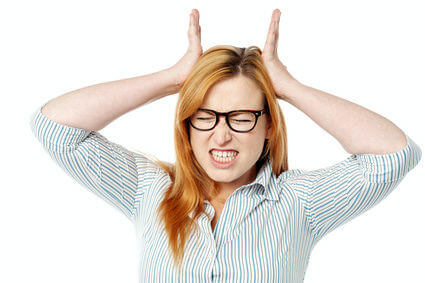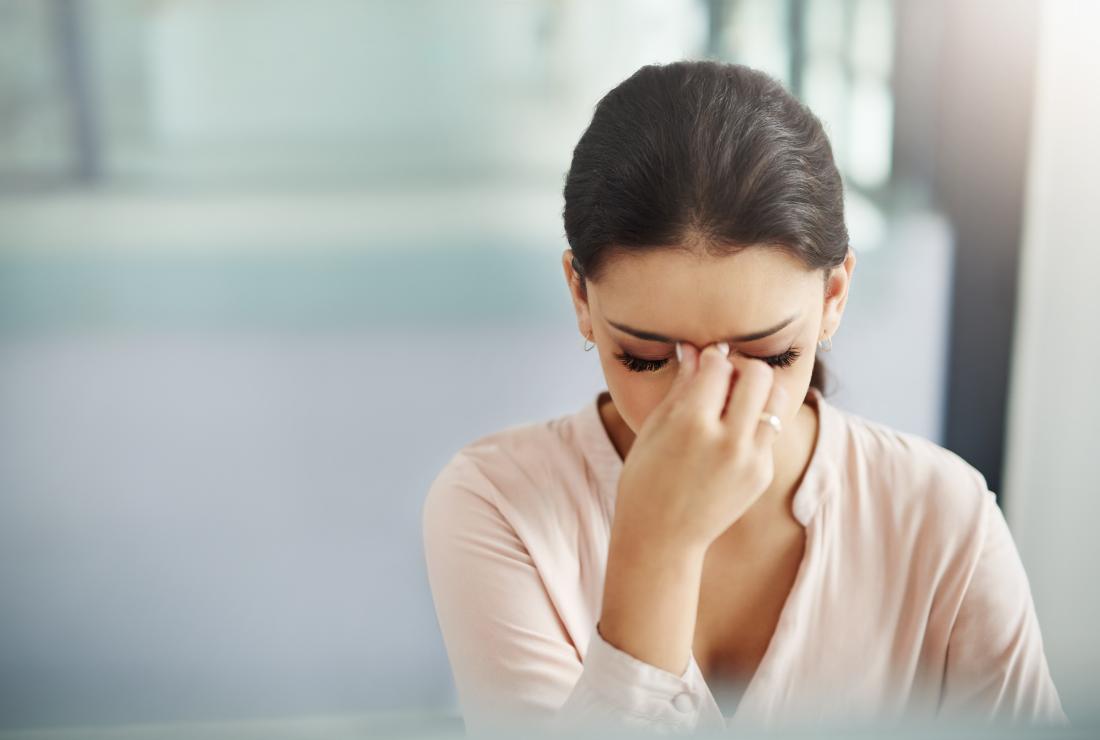Anxiety can be caused due to excessive worrying and restlessness. In many cases, anxiety can also cause irritability. However, anxiety may also have physical symptoms. One of the most common physical symptoms is anxiety headache.
While you may not be aware of it, anxiety headache is extremely common. When you start worrying about something a little too much, the head pain starts. These are tension headaches. Similarly, experiencing headaches when you get anxiety is known as anxiety headache.
Many people confuse migraine with anxiety headache. Anxiety disorder is common and can be treated by having a good lifestyle.
Table of Contents
Anxiety headache
Headache can be a cause as well as a symptom of anxiety. Tension headaches are very mild. However, in many cases, a tension headache can become very severe. Unlike migraine, anxiety headache is likely to affect all parts of your brain.

Migraine headaches can be severe and also lead to disability. Many studies show that people who suffer from frequent migraine episodes are likely to be more anxious and depressed.
Unlike anxiety headaches, migraine headaches cause visual blue. It will prevent you from practising your daily activities. On the other hand, it can also make you disabled for a short time. You may start visualizing flashes or halo due to migraine headaches.
What are the symptoms of Anxiety headache?
People who suffer from anxiety are likely to get tense even in the smallest situations. While this may not appear like a great deal, it is. The symptoms will play an important role in helping you differentiate what type of headache you are suffering from.
Tension headache
Tension headache is the biggest symptom. While it may not hamper your quality of life significantly, it will definitely have some negative impact. On the other hand, it can also be a huge trigger. Tension headaches can improve significantly, but they tend to last for a long time.
Migraine headache
While migraine headaches are different from anxiety headache, they do share some relation. Migraine headaches will last for a few days. However, if you want it to go away soon, you need to start medications.

In many cases, migraine pain can become very severe. It will make you feel as if you are unable to move. Moreover, in many cases, migraine pain will also restrict your movement.
What are the causes of anxiety headache?
Anxiety headache is common in people of all ages. No evidence states that children can’t have anxiety headache. Children who have had a traumatic childhood or experience are likely to experience it frequently.
Here are some of the common causes of anxiety headache
Stress
This has to be one of the most prominent causes of anxiety headache. If you ever suffer from emotional imbalance, your physical body will react. This will eventually give rise to stress.
Muscle tension
This is one of the most common triggers for anxiety. Many people complain about tension in eye muscles due to anxiety. While this is a threat, if you try to relax, the condition will eventually improve. If you have been suffering from anxiety for a long time, your body will eventually become alert to the symptoms.
Increase in serotonin level
An increase in serotonin level induces stress. As a result, it will eventually give birth to an anxiety headache. According to experts, too little or too much serotonin level in the body can hamper mental and physical health. If the serotonin level in the body increases suddenly, it will restrict the blood muscles. As a result, you will experience sharp, stinging pain.
Lack of sleep
People suffering from anxiety have a tough time sleeping. Furthermore, it will also trigger migraine attacks.
Pain sensitivity
If you are sensitive to pain, even the slightest trigger will affect you. The muscles will become tender. As a result, it will impact how you suffer.
What are the triggers of anxiety headache?
Constant research is being done to determine the triggers of anxiety headache. While the causes mentioned earlier are very common, certain other aspects can affect you.
Many people tend to react in a certain way when they are anxious. If they are tensed too much, they will start grinding their teeth or holding their neck. Many people also indulge in cheering gums to prevent headaches.

Women are likely to suffer from anxiety headaches during menstrual phases as well. Most people complain of anxiety headache at the start of their menstrual cycle. Your dietary habits are also likely to trigger anxiety headaches. If you are involved in excessive red wine and chocolates, you are more prone to suffering from anxiety.
What are the anxiety prevention techniques?
While you suffer from an anxiety headache, you need to identify measures that can help to prevent it. These steps include the following:
Identify the triggers
The first and foremost thing to do is identify what triggers anxiety. Stress, alcohol, and caffeine are common triggers.
Indulge in self-care
Taking care of yourself is the best thing you can do to prevent anxiety. Anxiety will hamper your daily life. When you start practicing self-care, you will be able to best the symptoms. You should get enough sleep and consume meals in your time.
What are the home remedies?
Meditation and therapy can help reduce anxiety. If you suffer from anxiety, you should consider visiting a psychologist. However, visiting the doctor may prescribe anti-anxiety drugs and antidepressants to treat the condition.
These types of headaches will require you to show a prescription to get medicines. Yoga and breathing exercises can help treat the condition. Many people also consider starting cognitive behavioral therapy to relax anxiety and pain.
Furthermore, many individuals also join support groups. This will help you identify new ways to cope up with your problems. You can also consider practicing biofeedback to notice the changes in your body.
Final Thoughts
Anxiety headache will drain you not only mentally but also physically. It will hamper your daily life and prevent you from living peacefully. However, there are keys to improvement that you can practice. You can consider visiting a therapist to reduce the negative impact of anxiety headache.







